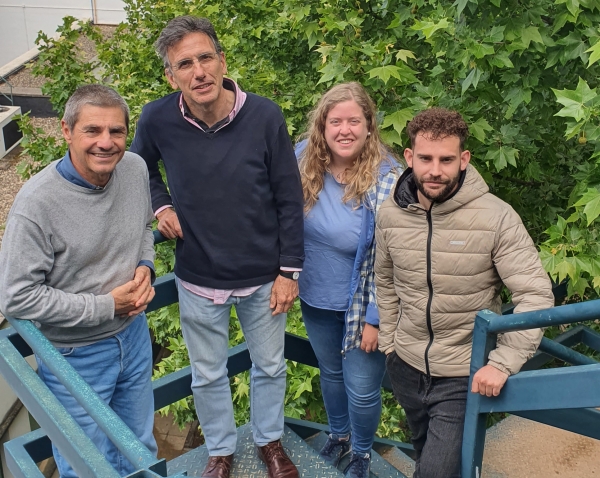Water shortages are a reality, and the use of unconventional alternative sources to generate water supplies is an increasingly widespread practice. A European project, scientifically coordinated by the University of Córdoba, aims to study formulas that provide solutions to the lack of water for crops.
Research staff and SME managers from Morocco, Tunisia, Jordan, Germany, Italy, Spain and Portugal have partnered to explore together the possibilities of joint water/energy planning in what is known as the water/energy/food nexus. Among other technologies, solar irrigation and its application to the production of electricity in rural areas will be explored in depth. Solar irrigation is a trend boasting many success stories today in countries around the world, such as India, Pakistan and some African territories. The European Bonex project, which will begin in May 2022 and has three years to meet its objectives, will study these cases with a view to learning from them and exporting them to Mediterranean countries.
The scientific coordinator of the project and of the research team at the UCO, Julio Berbel, explained that "the first step will be to identify the barriers that we will encounter and that are related, above all, to the bureaucratic procedures and the economic hurdles when it comes to obtaining the permits to sell surplus energy from irrigation to the network."
The key to the success of solar irrigation is, on the one hand, that crops are supplied with water directly from a pump powered by solar panels, such that the crop itself demands the water it needs. In addition, the surplus energy from the irrigation is sold, a practice that translates into economic advantages for farmers' cooperatives.
According to Berbel, the question to be answered by this European project is how to achieve this dual use of solar energy for crop irrigation and to increase the economic benefits for farmers and the production chain, which involves the entire sector. The Córdoba team, made up of researchers from the Agronomy Department at the UCO, Carlos Gutiérrez Martín, José Antonio Gómez Limón and Manuel Arriaza, and led by Berbel, has the task of identifying whether there is a need to improve infrastructure, access to new techniques, or rather to pay the prices that must be paid. "We're going to study the obstacles that are preventing solar irrigation from expanding in rural areas and having this dual use of water for cultivation and the sale of energy," explained Berbel, who noted that "it will be necessary to take into account the temptation not to overexploit aquifers to obtain more economic benefits."
The "BONEX - Boosting Nexus Framework Implementation in the Mediterranean", Grant Agreement number 2141, project is financed by the European Union through PRIMA S1 2021 NEXUS (IA) call.


